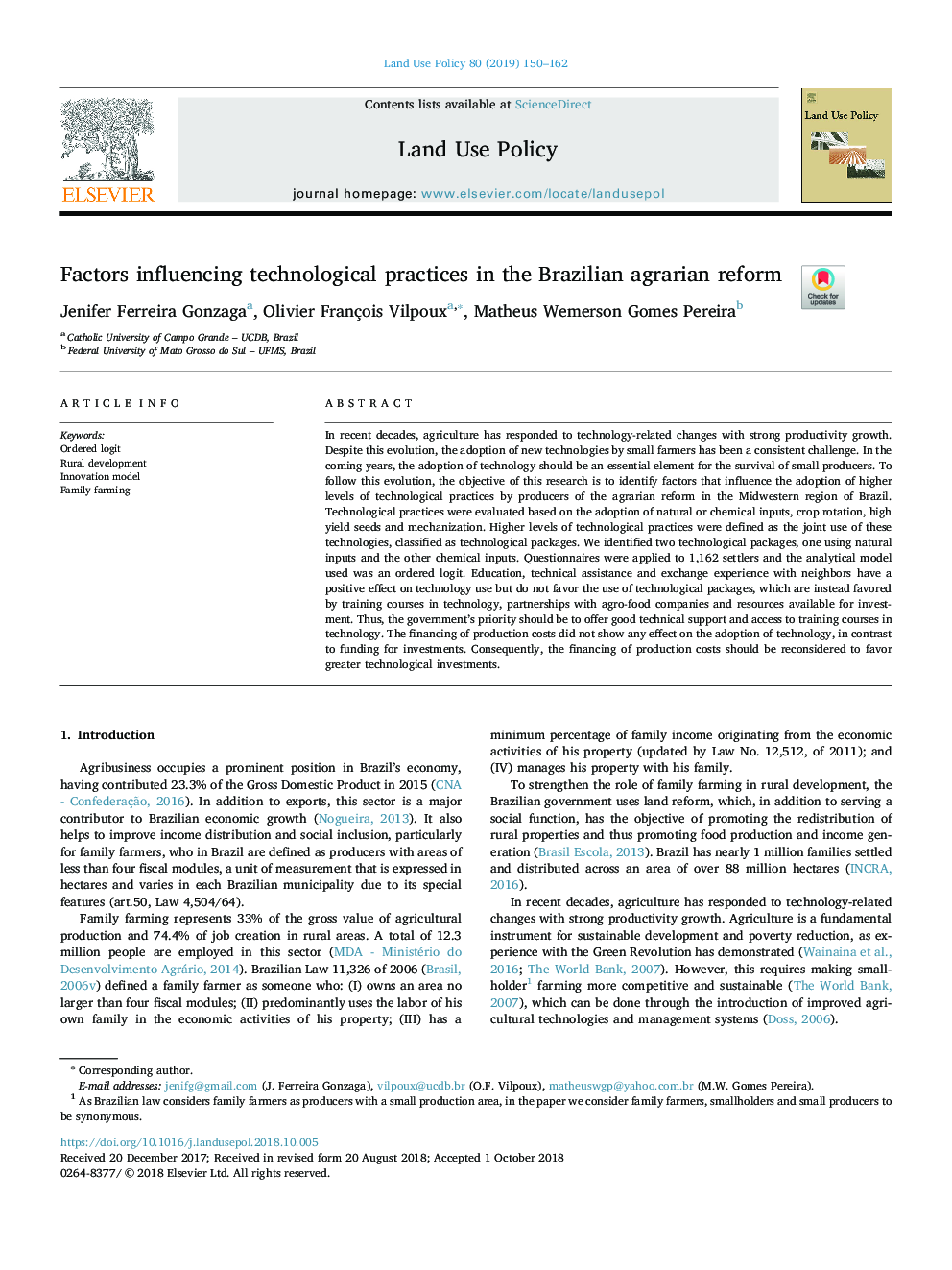| Article ID | Journal | Published Year | Pages | File Type |
|---|---|---|---|---|
| 11012814 | Land Use Policy | 2019 | 13 Pages |
Abstract
In recent decades, agriculture has responded to technology-related changes with strong productivity growth. Despite this evolution, the adoption of new technologies by small farmers has been a consistent challenge. In the coming years, the adoption of technology should be an essential element for the survival of small producers. To follow this evolution, the objective of this research is to identify factors that influence the adoption of higher levels of technological practices by producers of the agrarian reform in the Midwestern region of Brazil. Technological practices were evaluated based on the adoption of natural or chemical inputs, crop rotation, high yield seeds and mechanization. Higher levels of technological practices were defined as the joint use of these technologies, classified as technological packages. We identified two technological packages, one using natural inputs and the other chemical inputs. Questionnaires were applied to 1,162 settlers and the analytical model used was an ordered logit. Education, technical assistance and exchange experience with neighbors have a positive effect on technology use but do not favor the use of technological packages, which are instead favored by training courses in technology, partnerships with agro-food companies and resources available for investment. Thus, the government's priority should be to offer good technical support and access to training courses in technology. The financing of production costs did not show any effect on the adoption of technology, in contrast to funding for investments. Consequently, the financing of production costs should be reconsidered to favor greater technological investments.
Related Topics
Life Sciences
Agricultural and Biological Sciences
Forestry
Authors
Jenifer Ferreira Gonzaga, Olivier François Vilpoux, Matheus Wemerson Gomes Pereira,
